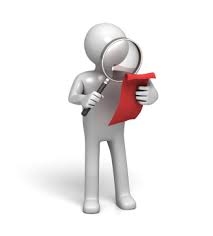记忆方法
将“examine”分解为“ex”(出)和“amine”(我来看),想象自己走出去检查或查看某物,从而形成“检查”这一动作的印象。
以上内容由AI生成, 仅供参考和借鉴
中文词源
examine 检查,考察
ex-, 向外。-act, 做,驱使,称量,词源同act, examine, exigent. 即称量,检查。其拼写受example影响。
英语词源
- examine
-
examine: [14] Like essay and exact, examine comes ultimately from Latin exigere, a compound verb formed from the prefix ex- ‘out’ and agere ‘lead, drive’ (source of English act and agent). This originally meant literally ‘drive out’, but a metaphorical sense ‘weigh accurately’ developed which was carried over into a derived noun exāmen ‘weighing’. This in turn formed the basis of another derivative, the verb exāmināre ‘weigh’, hence ‘weigh up, ponder, consider, test, examine’. The abbreviation exam for examination dates from the late 19th century.
=> act, agent, essay, exact - examine (v.)
- c. 1300, from Old French examiner "interrogate, question, torture," from Latin examinare "to test or try; consider, ponder," literally "to weigh," from examen "a means of weighing or testing," probably ultimately from exigere "weigh accurately" (see exact (adj.)). Related: Examined; examining.
权威例句
- 1. I'll start with some generalities and then examine a few specific examples.
- 我首先进行概述,然后会分析几个实例。
- 2. We examine the wording in detail before deciding on the final text.
- 我们彻底仔细地检查了措词后才最终定稿。
- 3. Doctors examine their patients thoroughly in order to make a correct diagnosis.
- 为了作出准确的诊断,医生会对病人进行彻底的检查。
- 4. The accused's lawyers will get a chance to cross-examine him.
- 被告律师将有机会盘问他。
- 5. Her husband and children will also have to re-examine their expectations.
- 她的丈夫和孩子也都要重新审视他们的期望。
